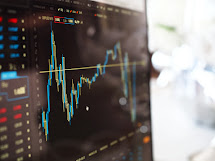Introduction
Trading offers the chance to make money by buying and selling financial products, making it an intriguing endeavor. Whether you want to trade stocks, currencies, commodities, or cryptocurrencies, you need to have information, be ready, and have a disciplined approach before you can start. We will lead you through each step in this thorough guide to help you begin trading and lay a strong foundation for your trading career.
Here are some ways to learn How to start Trading:

1.Understand the Basics
It is critical to comprehend the fundamental ideas before beginning to trade. Discover the various financial markets, including equities, FX (foreign exchange), commodities, and cryptocurrencies. Learn basic trading terminology such as bid/ask price, spread, leverage, and market orders. Learn about fundamental and technical analysis, which are two popular ways for making trading decisions.
2.Set Clear Goals and Define a Trading Strategy
Setting defined goals is critical for staying focused and making sound trading selections. Determine your risk tolerance, timetable for investing, and expected results. It is also critical to design a trading strategy that is in line with your objectives. Consider the sort of trading you want to do (day trading, swing trading, or position trading), the instruments you want to trade, and the indicators or patterns you'll employ to spot probable trade setups.
3.Educate Yourself and Practice
Invest in your trade knowledge by reading books, attending seminars, or taking online courses. Understand various trading tactics, risk management approaches, and trading psychology. Use broker demo accounts to practice your trading abilities in a risk-free environment. This allows you to obtain hands-on experience and fine-tune your approach before putting your money at danger.
4.Paper Trading
Consider practicing with paper trading or virtual trading platforms provided by many brokerages before putting real money at risk. These platforms let you to make trades using virtual money, providing a risk-free environment in which to test your methods and acquire confidence in your trading talents. Take use of this chance to fine-tune your strategy and learn from any missteps.
5.Choose a Reliable Broker and Trading Platform
A reputed broker is essential for a seamless trading experience. Consider the broker's regulatory compliance, trading costs, accessible financial instruments, customer assistance, and the usefulness of the trading platform. Check that the trading platform has the tools you need for analysis, order placing, and risk management. Examine the platform's user interface and features to ensure that they are compatible with your trading style and preferences.
Here are some additional tips for beginners:
Begin modestly. Avoid trying to trade excessively early. As you acquire experience, start with a little sum of money and progressively raise your risk.
Make research. Make sure you do your homework and are aware of the hazards before purchasing or selling an item.
Put stop-loss orders to use. A stop-loss order is one that causes an asset to be automatically sold if its price drops below a specific level. If the market turns against you, this might assist you in limiting your losses.
Take pauses. Never deal while you're emotional or worn out. To stay calm and prevent snap judgments, take pauses from trading.
